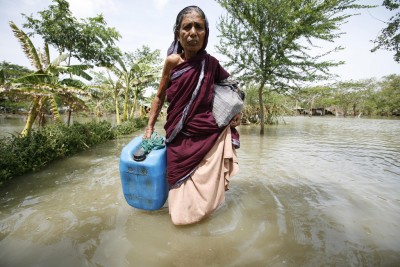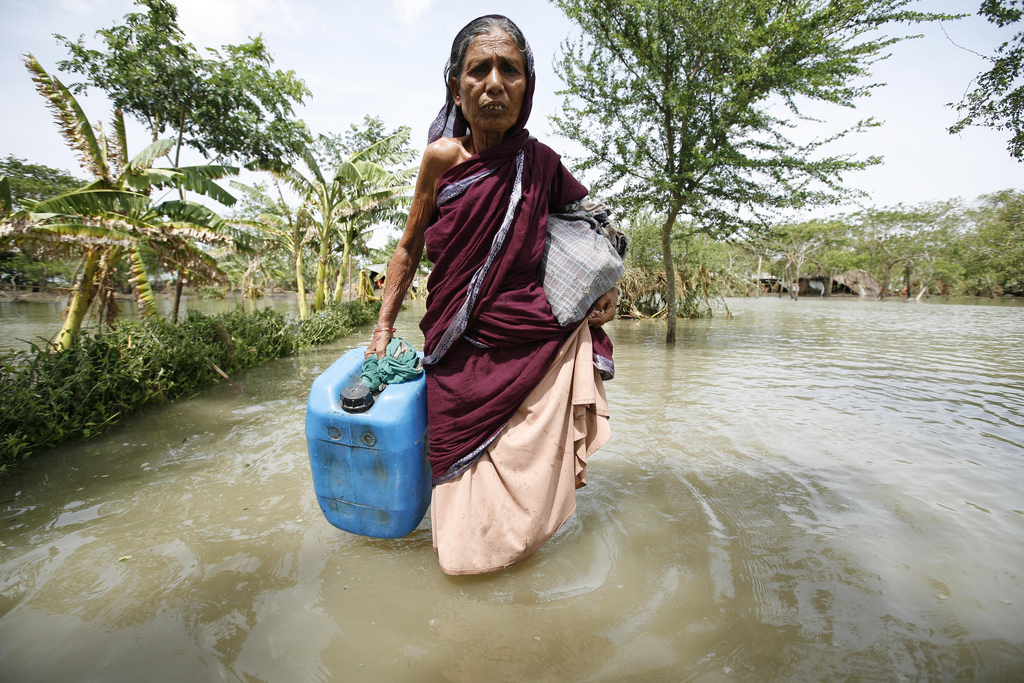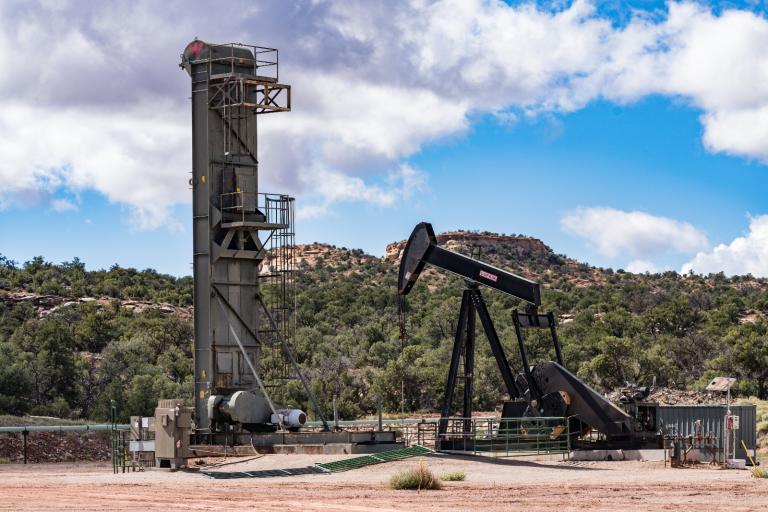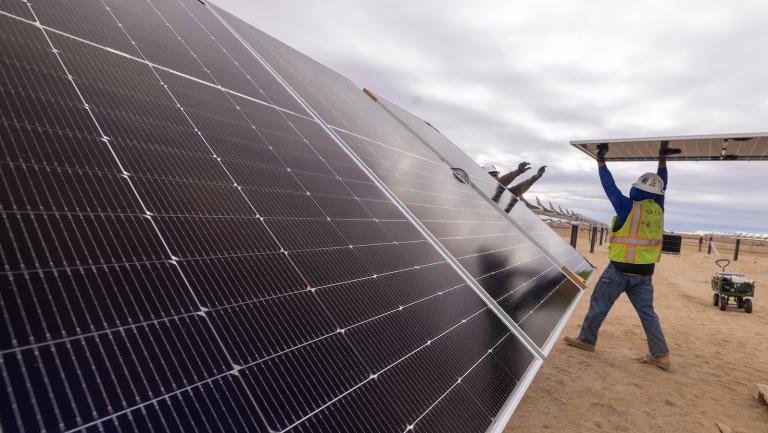This is the second dispatch by Population Action International from global climate change talks in Bonn, Germany. Read the first.
 A Bangladeshi woman searches for drinking water after a cyclone.Photo: Abir Abdullah/OxfamOne of the under-reported issues about climate change is its dramatic affect on women. A side event I attended this afternoon, organized by the Global Gender and Climate Alliance (GGCA), included speakers from all around the world, representing men, women, government agencies, NGOs, North and South. But their messages were unified: women’s historic disadvantages — limited access to resources, restricted rights, under-representation in decision making — have made them disproportionately vulnerable to climate change impacts.
A Bangladeshi woman searches for drinking water after a cyclone.Photo: Abir Abdullah/OxfamOne of the under-reported issues about climate change is its dramatic affect on women. A side event I attended this afternoon, organized by the Global Gender and Climate Alliance (GGCA), included speakers from all around the world, representing men, women, government agencies, NGOs, North and South. But their messages were unified: women’s historic disadvantages — limited access to resources, restricted rights, under-representation in decision making — have made them disproportionately vulnerable to climate change impacts.
Women make up 70 percent of the world’s poorest people, pointed out Sirkka Haunia, Finland’s chief negotiator. More women die in weather-related natural disasters.
“Seventy percent of subsistence farmers in my country are women,” said William Kojo Agyemang-Bonsu, Ghana’s chief negotiator. “When climate changes rainfall patterns, they will be the ones who will be most negatively affected.”
There is no quick fix to overcoming climate change’s sexist tendencies. As several in the meeting pointed out, it is akin to a running a marathon or climbing Mt. Kilimanjaro. “It’s a sad state of affairs when only 16 percent of the scientists in the Intergovernmental Panel on Climate Change are women,” said a female member of the IPCC, the body charged with assessing the state of climate change science for policymakers.
But they are not just victims, the panelists pointed out. “Women everywhere in the world possess unique knowledge and skill, and are active agents of change,” said Lorena Aguilar of the World Conservation Union. According to Khamarunga Banda, of ENERGIA in South Africa, “Women make the majority of choices about individual lifestyles and are the ones who change ‘business as usual’ — so they will need to be central figures in reducing energy use and switching to cleaner sources of fuel.” Building on these ideas, the GGCA’s strategy is to ensure that gender dimensions of climate challenges and solutions find a place in the text of the next climate agreement.
My organization, Population Action International, embraces the idea of greater gender equity leading to better and more lasting climate change solutions. By meeting women’s needs — including needs for adequate reproductive-health and family-planning services — we can improve the health and well-being of women and families, increasing resilience in the face of climate change and putting the breaks on population growth that is associated with rising greenhouse-gas emissions.




